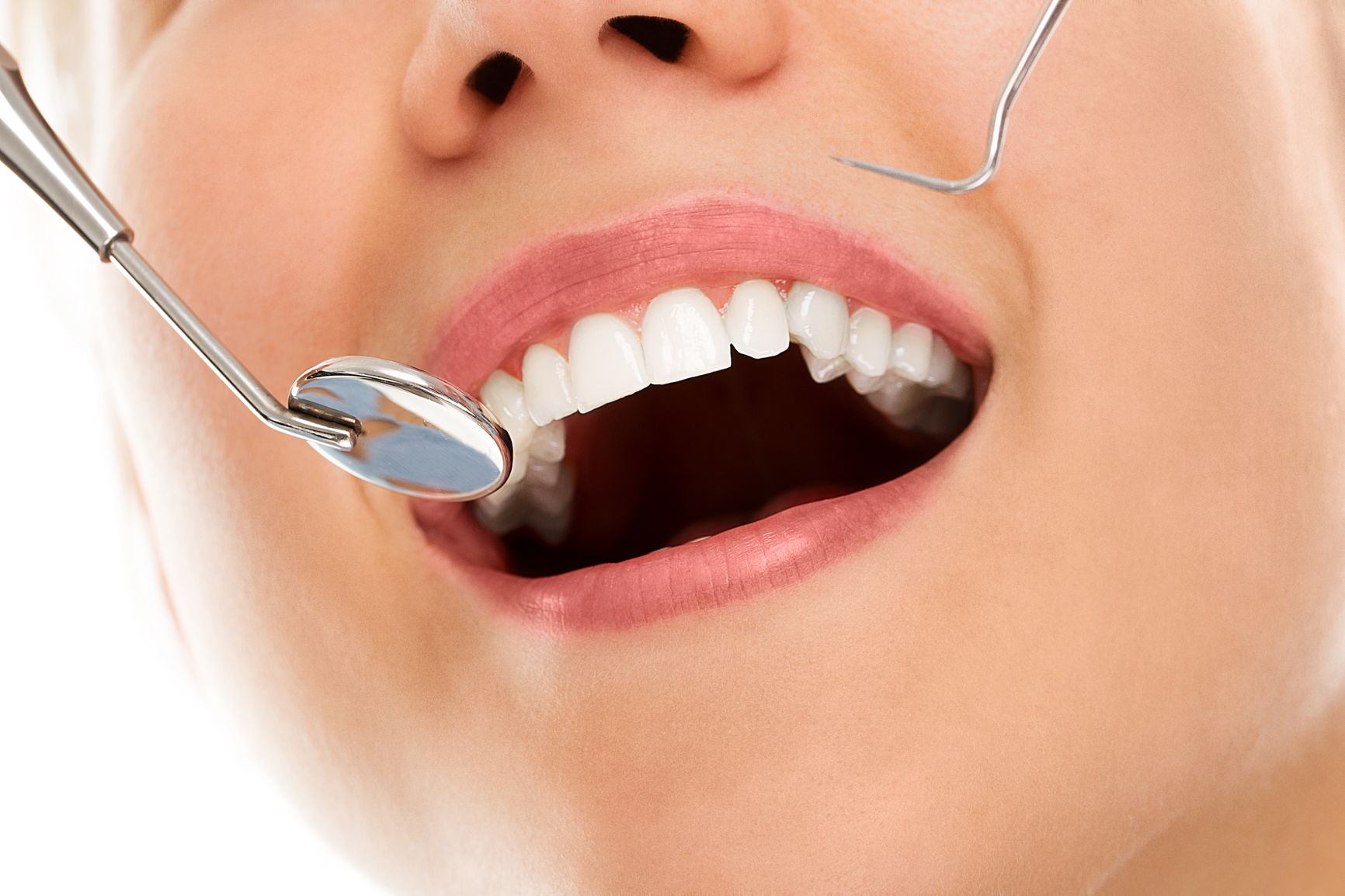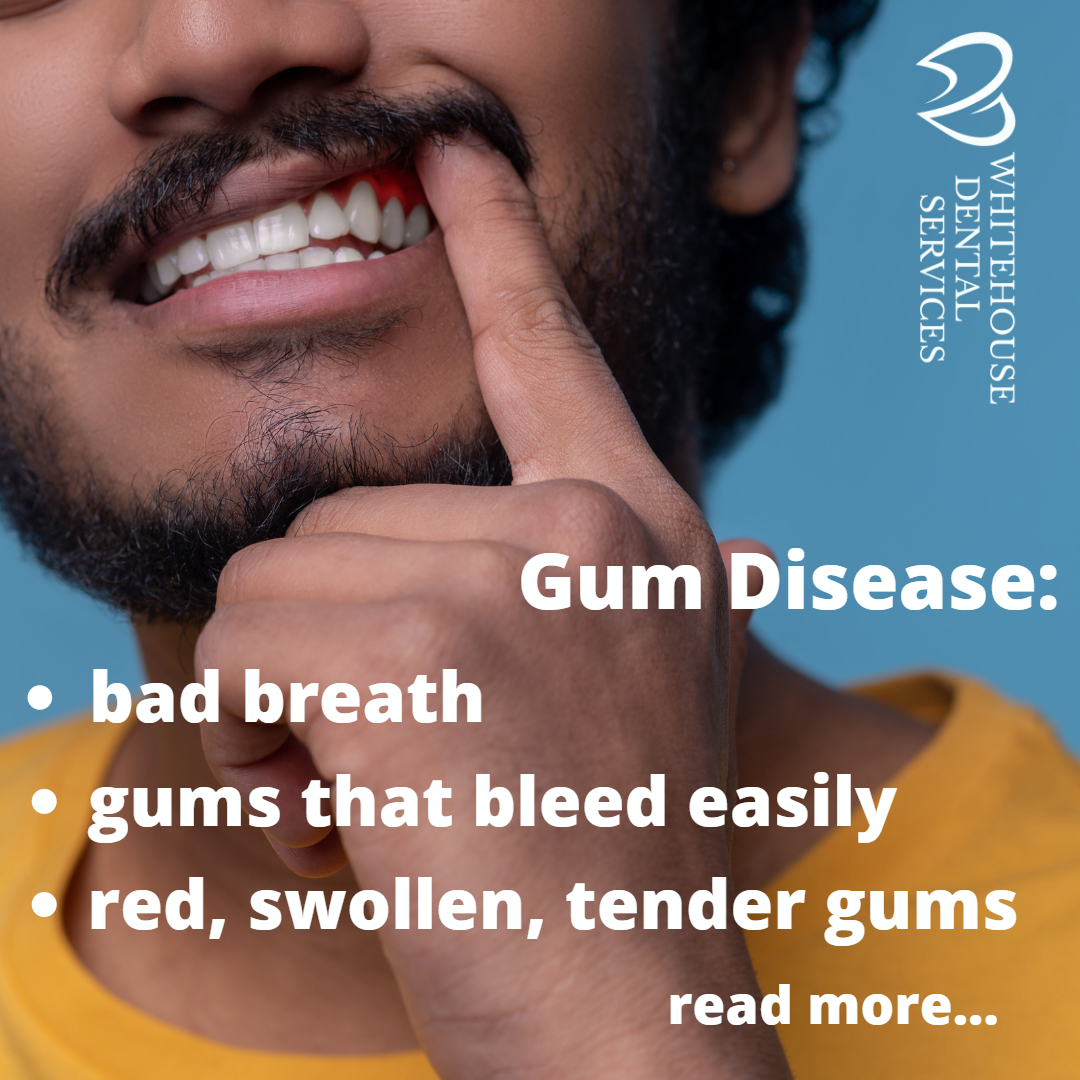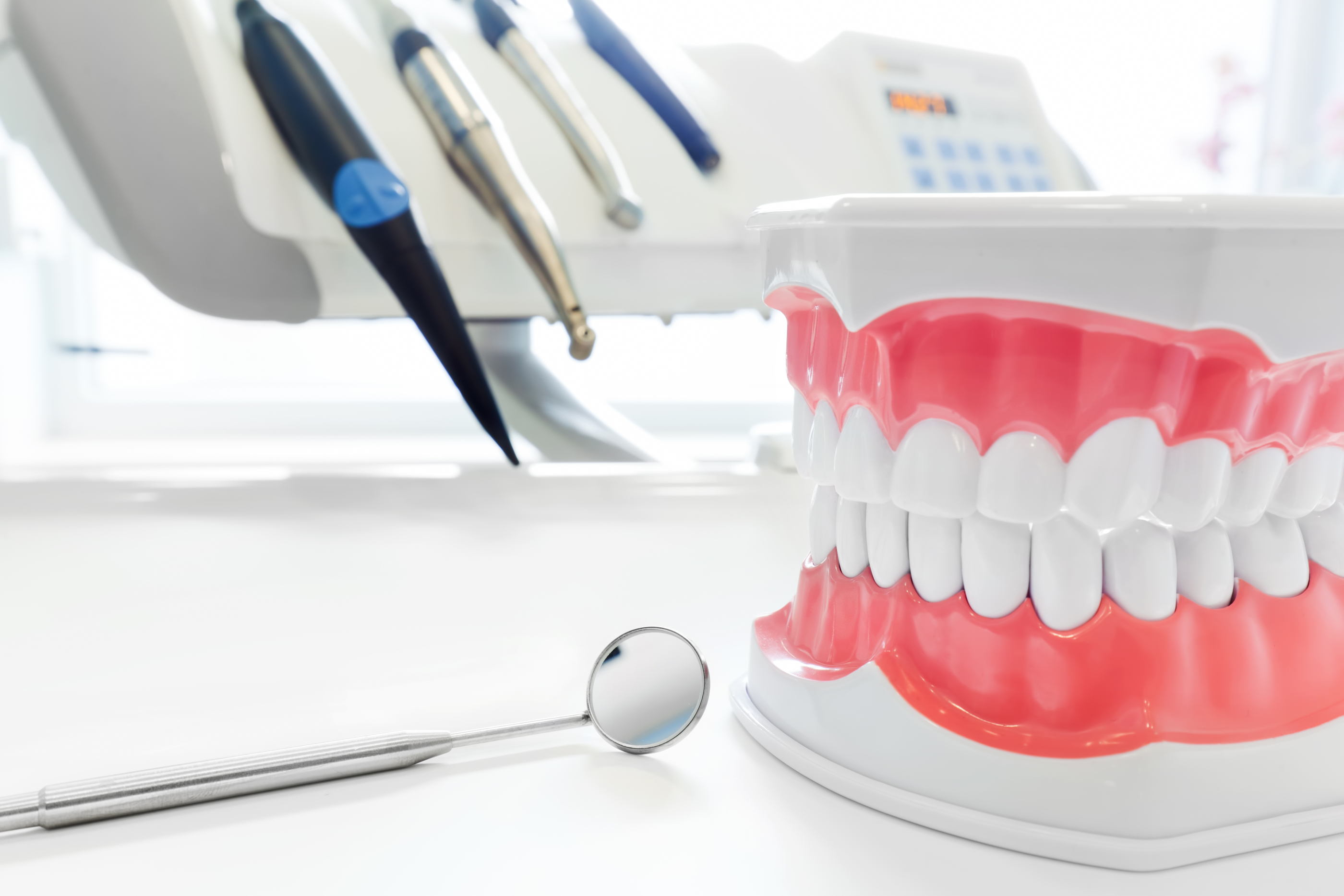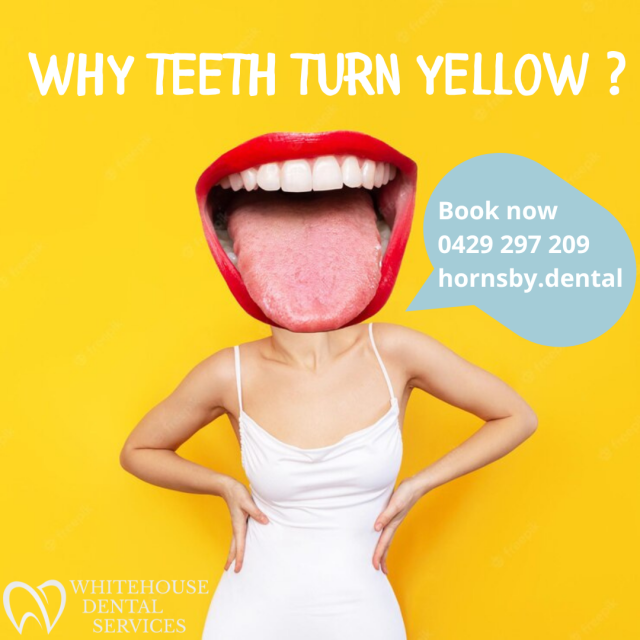Glossitis is typically characterized by an inflammation of the tongue. It can also cause changes in the tongue's texture and color.
The soft palate is the muscular part at the back of the roof of the mouth. It sits behind the hard palate, which is the bony part of the roof of the mouth. The palates play important roles in swallowing, breathing, and speech.
Gum disease is an infection of the tissues that surround and support your teeth. It is a major cause of tooth loss in adults. Because gum disease is usually painless, you may not know you have it. Also referred to as periodontal disease, gum disease is caused by plaque, the sticky film of bacteria that is constantly forming on our teeth.
Here are some warning signs that can signal a problem:
• gums that bleed easily
• red, swollen, tender gums
• gums that have pulled away from the teeth
• persistent bad breath or bad taste
• permanent teeth that are loose or separating
• any change in the way your teeth fit together when you bite
• any change in the fit of partial dentures
Some factors increase the risk of developing gum disease. They are:
• poor oral hygiene
• smoking or chewing tobacco
• genetics
• crooked teeth that are hard to keep clean
• pregnancy
• diabetes
• medications, including steroids, certain types of anti-epilepsy drugs, cancer therapy drugs, some calcium channel blockers and oral contraceptives
See your dentist if you suspect you have gum disease because the sooner you treat it the better. The early stage of gum disease is called gingivitis. If you have gingivitis, your gums may become red, swollen and bleed easily. At this stage, the disease is still reversible and can usually be eliminated by a professional cleaning at your dental office, followed by daily brushing and flossing.
Advanced gum disease is called periodontitis. It can lead to the loss of tissue and bone that support the teeth and it may become more severe over time. If it does, your teeth will feel loose and start moving around in your mouth. This is the most common form of periodontitis in adults but can occur at any age. It usually gets worse slowly, but there can be periods of rapid progression.
That is one reason why regular dental checkups and periodontal examinations are very important. Treatment methods depend upon the type of disease and how far the condition has progressed. Good dental care at home is essential to help keep periodontal disease from becoming more serious or recurring.
Remember: You don’t have to lose teeth to gum disease. Brush your teeth twice a day, clean between your teeth daily, eat a balanced diet, and schedule regular dental visits for a lifetime of healthy smiles.
Mouth guards have many purposes, and can help treat conditions from teeth grinding to sleep apnea. They also protect your mouth from sports-related injury. Mouth guards may be store-bought or custom-made by a dentist.
Our Dentists recommend mouth guards for adults and children
for many different reasons.
You might need one if you:
• Grind or clench your teeth (bruxism).
• Play contact sports such as football, basketball, hockey, soccer or boxing.
• Participate in activities with a high fall risk, such as gymnastics, biking or ice skating.
• Snore.
• Have obstructive sleep apnea.
• Have TMJ disorder.
There are three main types of mouth guards. We can categorize them according to purpose:
1. Mouth guards for sports. These protect your teeth from sports-related injuries. If you play sports like boxing, wrestling, soccer, basketball, hockey or football, mouth guards can greatly reduce your risk for chipped and avulsed (knocked out) teeth.
2. Mouth guards for grinding teeth. These appliances help protect your teeth from the effects of grinding and clenching. They may also reduce the effects of TMJ disorders. You can wear this type of mouth guard any time, night or day. But because most people grind or clench their teeth during sleep, it’s common to wear them at night. (Some people refer to these appliances as night guards.)
3. Snoring and sleep apnea mouth guards. People with chronic snoring or obstructive sleep apnea may benefit from a custom mouth guard. This type of appliance shifts and repositions your jaw to open your airway during sleep.
Take care of yourself and your teeth.
For more information contact us.
Gingivitis means inflammation of the gums, or gingiva. It commonly occurs because a film of plaque, or bacteria, accumulates on the teeth. This is more serious and can eventually lead to loss of teeth.
Normal shade of healthy teeth
MILK OR CREAM.
But some people have yellow teeth, even if they practice good oral hygiene and brush their teeth properly.
Features of yellowness in teeth are different.
! Genetics. A person may already be born with a yellowish enamel color, which he inherited from his parents.
. Food and drinks: coffee, tea, sodas, wine, bright fruits and berries – revealing staining of the teeth by plaque and thus the appearance of the teeth change in color
. Smoking. Tar and nicotine are very fond of settling on the inside of the teeth with yellow and brown spots.
. Products containing refined sugar. Cookies, sweets, marmalade, chocolates
– it’s all so tasty, but unhealthy and color of your teeth
! Excessive use of fluoride. Usually uncontrolled supply of fluorine to normal with drinking water, in those regions where the water contains an excess of fluorine
! Age changes. Enamel becomes thinner and dentin is better visible, outwardly the teeth look yellowish
! Pathology of the liver and biliary tract.
It is important to contact not only the dentist, but also the gastroenterologist!
. Powerful drugs. For example, with long-term use of antibiotics, plaque should be avoided in the teeth.
! poor oral hygiene that leaves plaque
! The color of the teeth can change due to trauma and after endodontic treatment.
• But, of course, yellow teeth are not a sentence!
It is enough to visit the dentist regularly, do whitening and professional teeth cleaning. If you want to have white teeth – you will get them!
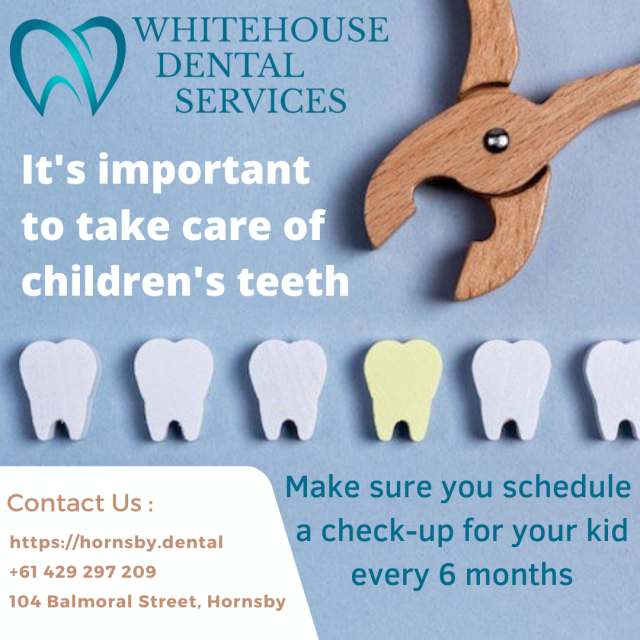
Our tips for taking care of children’s teeth:

Most common dental problems during pregnancy:
⠀
⠀
⠀
⠀
It is best to avoid brushing your teeth immediately after vomiting, as this exposes the enamel to additional acid attack. Be sure to rinse your mouth with water after vomiting.
⠀
And the main thing that you should remember is that pregnancy is not a reason to give up on the state of the oral cavity
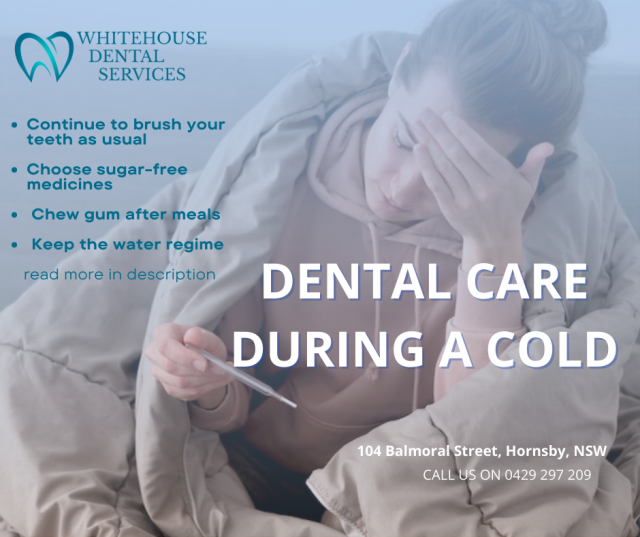
TOP ways to take care of your mouth when you are sick:
1. Continue to brush your teeth as usual, 2 times a day. Do not share a toothbrush, especially when you are sick and do not put in one common glass with all the household brushes!
2. Choose sugar-free medicines!
Avoid ingredients such as fructose, corn syrup, honey. Many cough syrups contain sugar. Sugar + microbes = caries. The longer you keep sweet cough drops in your mouth, the worse the effects on your teeth.
3. Rinse your mouth after vomiting!
Do not brush your teeth immediately after vomiting! When you vomit, stomach acid gets on your teeth and coats them. If you brush your teeth right away, you are just smearing this acid, damaging your teeth.
After vomiting, brush your teeth with a mouthwash or diluted mouthwash to help wash away the acid. Spit it out and brush your teeth after about 30 minutes.
4. Chew gum after meals!
Chewing sugar-free gum for 5-10 minutes increases the flow of saliva, which washes away food and other debris, and neutralizes acids produced by bacteria in the mouth. Increased saliva flow also brings with it more calcium and phosphate, which help strengthen tooth enamel.
But don’t substitute chewing for brushing your teeth!
5. Keep the water regime!
Certain medications such as antihistamines, decongestants, or pain relievers can cause dry mouth, so drink plenty of water. Dry mouth can put you at greater risk of cavities.
6. Choose the right hot drinks!
Watch the temperature – not hot and not cold. Less sugar in drinks – instead of it, you can pour a spoonful of honey into tea. You can drink through a straw so that as little sweet / sour as possible gets on your teeth.
Lemon is also a citrus that is quite dangerous for our teeth, do not get carried away with it too often.
When you have a cold or the flu, taking care of yourself is your top priority, including your teeth.


